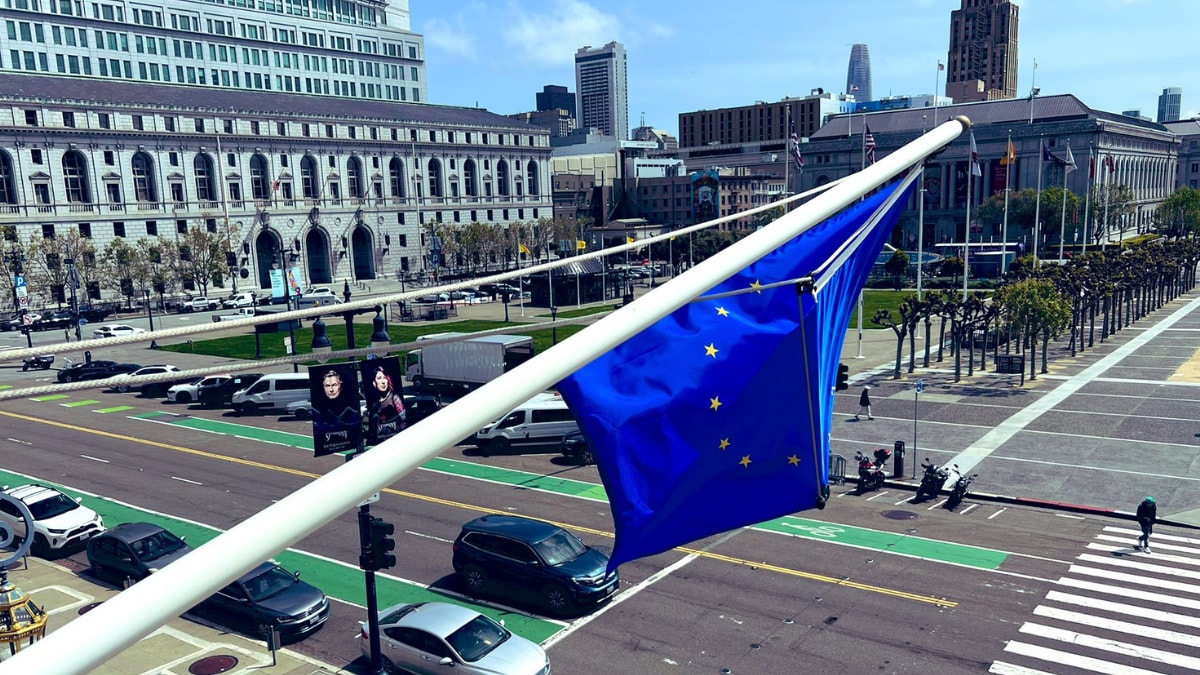European Union Looks to ‘Re-Calibrate’ Position on China as Beijing Grows Assertive
EU foreign ministers agreed on Friday on the need to “recalibrate” Europe’s position on China, reducing dependencies and coaxing Beijing to take a tougher stance on Russia’s war in Ukraine, the bloc’s foreign policy chief said.
Brussels has urged the European Union’s 27 nations to get on the same page on how they deal with China, as a more assertive Beijing asserts its influence on the world stage.
At a meeting hosted by Sweden, European Union foreign policy chief Josep Borrell presented the bloc’s foreign ministers with a paper outlining the need to “define” and “re-calibrate our position towards China”.
“They agree on the basic lines of this re-calibration of our strategy with China considering the recent domestic evolution in China and its foreign policy trajectories,” Borrell said.
Borrell said the EU was sticking to its existing vision of China as simultaneously a partner, competitor and rival.
He stressed it remained important to “engage” with Beijing at the same time as looking to cut the EU’s reliance in the face of fundamentally different values and economic systems.
But he said the adjusted policy was not aimed at “de-coupling” Europe from the world’s second biggest economy, but to “balance” the relationship.
Most pressing among the points of contention is China’s refusal to condemn its close ally Russia for its invasion of Ukraine, or to press Moscow to stop its attack.
Borrell conceded that relations between the EU and China were strained by China’s position on the ongoing conflict.
– China pushing Russia –
“European Union-China relations will not develop normally if China doesn’t push Russia to withdraw from Ukraine” Borrell said.
Brussels has enraged Beijing by proposing to restrict exports of sensitive tech to eight Chinese firms suspected of shipping it on to Russia.
On a European tour this week, Chinese Foreign Minister Qin Gang warned that Beijing would make a “necessary response” if the EU moved ahead with any sanctions.
In Berlin, Qin clashed over Ukraine with German counterpart Annalena Baerbock, who insisted China’s proclaimed “neutrality means taking the side of the aggressor”.
On Friday, Baerbock stressed that the proposal was “not about economic sanctions” but about preventing “war materials being delivered to Russia by other states.”
On a trip to China last month, French President Emmanuel Macron opened up EU fissures by saying Europe should not automatically follow US policy on Taiwan and should avoid “crises that aren’t ours”.
That stirred fierce criticism from some other European allies, which see the United States as a security guarantor against Russia.
Polish deputy foreign minister Pawel Jablonski on Friday said that “any attempt at breaking international law” or “deteriorating security” should be met with a “decisive answer”.
Jablonski also stressed that it was important for the EU not to become dependent on China, comparing it to how Europe was “dependent” on Russian energy.
– ‘Same mistakes’ –
“We shouldn’t make ourselves dependent on any country in the future. We should find a way to be a partner not a client,” Jablonski told reporters.
Lithuanian Foreign Minister Gabrielius Landsbergis echoed the sentiment, saying: “We cannot make the same mistakes as we’ve done when dealing with Russia” while adding that China should be treated with more “caution”.
Meanwhile, during a visit to neighbouring Norway, Qin called for Europe and China to “oppose the Cold War mentality”.
“If we have a new Cold War, the outcomes will be even more disastrous (than previously) and will seriously damage relations and cooperation between China and Europe,” Qin said.
Friday’s meeting of foreign ministers in Stockholm was not meant to reach any concrete conclusions and the debate on China will continue at a leaders’ summit in June.
The EU ministers will follow up their China discussion with a meeting on Saturday with counterparts from the Asia-Pacific region.
Beijing will once again be the elephant in the room as talks turn to security issues, including tensions in the Taiwan Strait.
But a senior EU official said the meeting would be above all about “building partnerships”.
(This story has not been edited by News18 staff and is published from a syndicated news agency feed)
For all the latest world News Click Here

